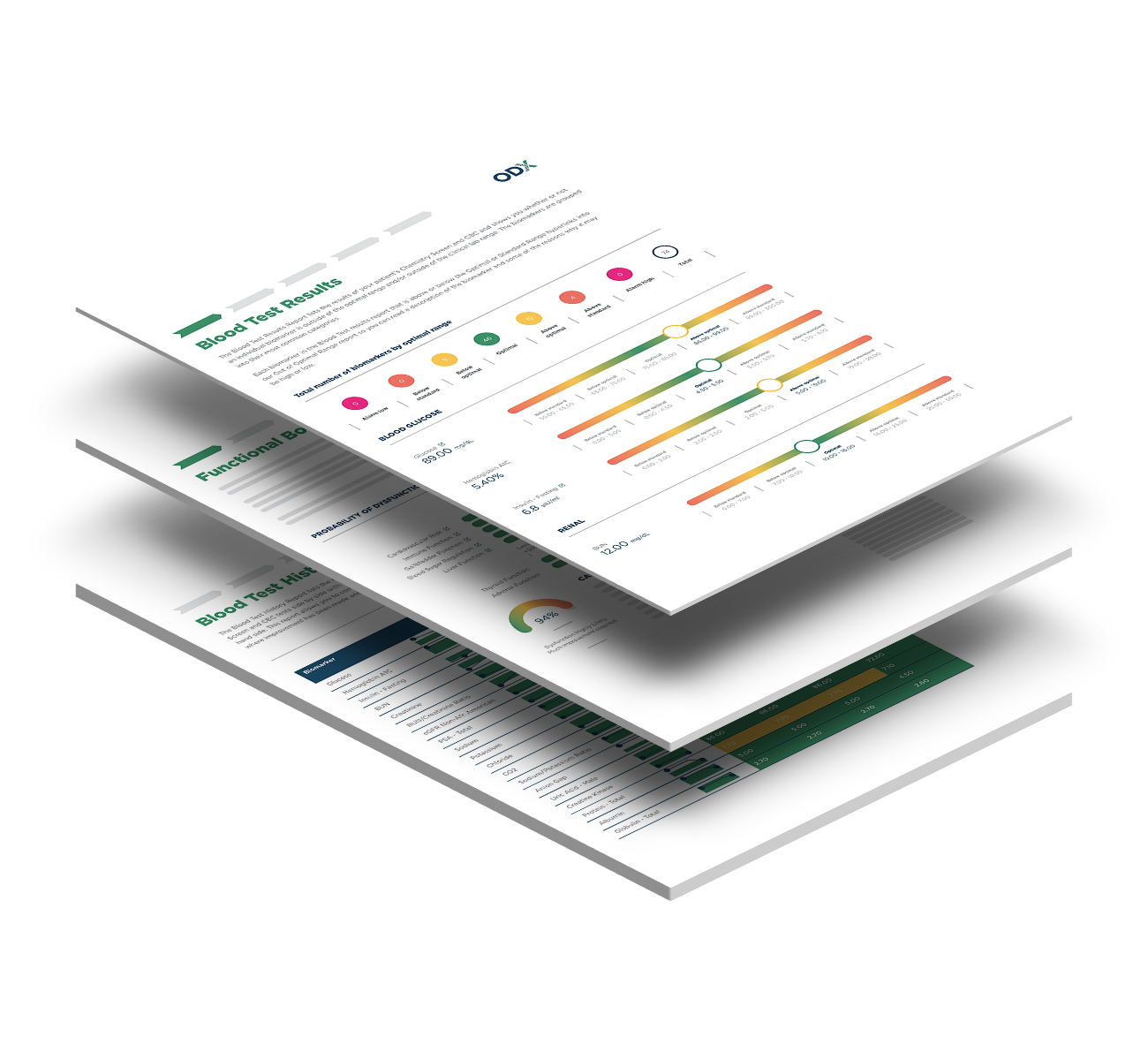Oxidative stress and cardiometabolic disease
Dicken Weatherby, N.D. and Beth Ellen DiLuglio, MS, RDN, LDN
Oxidative stress and inflammation are hallmarks of cardiovascular disease, obesity, and metabolic syndrome. Not surprisingly, intake of fresh fruits, vegetables, and other sources of protective antioxidants tend to be insufficient in individuals suffering from these same preventable chronic diseases.
The ODX Oxidative Stress Series
- Oxidative Stress part 1 - And You Thought You Were Stressed!
- Oxidative Stress part 2 - Blood Biomarkers: Functional Blood Chemistry Clues
- Oxidative Stress part 3 - Specialized Markers Provide More Clues
- Oxidative Stress part 4 - Cardiometabolic Disease & Oxidative Stress
- Oxidative Stress part 5 - The Cholesterol Connection
- Oxidative Stress part 6 - Glutathione Inside and Out
- Optimal - The Podcast: Episode 1 Oxidative Stress
Evaluation of oxidative stress and antioxidant status of 959 adults without hypertension, diabetes, or dyslipidemia was performed. Results revealed that oxidative stress markers correlated positively with age, gamma-glutamyltransferase, ferritin, and smoking; and negatively with drinking habits, and alpha-tocopherol. Total antioxidant status correlated significantly with antioxidant compounds uric acid, folate, vitamin A and the branched chain amino acid valine.[i]
Oxidative stress is a factor in type 2 diabetes (T2D) and in cardiovascular disease, the cause of death in ~65% of T2D patients. A review of the literature reveals that[ii]
- T2D and hyperglycemia cause oxidative stress as well as platelet activation and aggregation
- Oxidative stress can increase platelet activation and disrupt vascular homeostasis
- Free radicals promote CVD risk factors such as inflammation, endothelial dysfunction, lipid peroxidation, and platelet activation
- Oxidative stress can induce production of intracellular adhesion molecules (ICAMs) on the surface of platelet and endothelial cells
- ICAMs then facilitate aggregation of platelets and development of atherosclerotic plaque
- Antioxidants can counteract and even prevent oxidative damage
Markers of systemic oxidative stress and inflammation were significantly elevated in obese subjects compared to nonobese controls. Increased markers included hsCRP, malondialdehyde, oxidized a1-antiproteinase, as well as increased ratio of oxidized to reduced glutathione. Markers were highest in obese individuals expressing additional characteristics of metabolic syndrome (hyperglycemia, hypertension, and atherogenic dyslipidemia). The presence of increased oxidative stress and inflammation in obese individuals increases risk of atherosclerosis and type 2 diabetes.[iii]
A cross-sectional study of 48 normal-weight and 40 obese adults found that markers of oxidative stress were lowest in normal-weight subjects while oxidized LDL, CRP, TNF-alpha, and IL-18 were significantly higher in obese subjects, especially in obese subjects with metabolic syndrome versus those without it.[iv]
Clearly, it is imperative to address oxidative stress when evaluating risk for cardiometabolic disease…otherwise a keystone piece of the puzzle will be missing.
Up Next - Oxidative Stress part 5 - the Cholesterol Connection
References
[i] Oda, Kanae et al. “Uric acid, ferritin and γ-glutamyltransferase can be informative in prediction of the oxidative stress.” Journal of clinical biochemistry and nutrition vol. 64,2 (2019): 124-128. doi:10.3164/jcbn.18-23
[ii] Robson, Roy et al. “Oxidative stress biomarkers in type 2 diabetes mellitus for assessment of cardiovascular disease risk.” Diabetes & metabolic syndrome vol. 12,3 (2018): 455-462. doi:10.1016/j.dsx.2017.12.029
[iii] Skalicky, Jiri et al. “Evaluation of oxidative stress and inflammation in obese adults with metabolic syndrome.” Clinical chemistry and laboratory medicine vol. 46,4 (2008): 499-505. doi:10.1515/CCLM.2008.096
[iv] Van Guilder, Gary P et al. “Influence of metabolic syndrome on biomarkers of oxidative stress and inflammation in obese adults.” Obesity (Silver Spring, Md.) vol. 14,12 (2006): 2127-31. doi:10.1038/oby.2006.248






